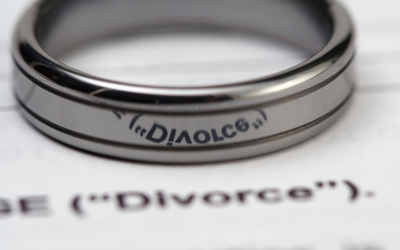An uncontested divorce is where both spouses agree to a divorce, and as such have no disagreements concerning usual divorce issues such as the division of property or maintenance. There’s usually no major court hearings with an uncontested divorce and the result of this is less paperwork and other procedures. A contested divorce, in contrast, is one where one or both parties can’t reach an agreement on the major divorce issues, and this can become a complex process which can take months to resolve. There will be much back-and-forth communication with a contested divorce and it can take a long time for both parties to agree on the terms of their divorce. Naturally, however, it’s common for one spouse to initiate the divorce proceedings, no matter how mutual it is afterwards.
Uncontested divorces generally are only available for couples who mutually agree on the decision to divorce from one another. In addition to this, the spouses need to reach a basic understanding regarding the major issues, such as child custody, property division and spousal support. Usually, it’s common for one spouse in particular to initiate the paperwork for an uncontested divorce, and if the other spouse agrees then a judge will grant the divorce using streamlined court procedures. depending on the factors of the situation, it may be the case that the couple is eligible for other types of divorce mechanisms such as a summary dissolution. However, if one spouse doesn’t agree to a divorce, then the divorce is no longer considered uncontested and in these situations, the couple will need to embark on the usual court proceedings in order to come to an agreement which both parties are happy with.
So what are the pros and cons? An uncontested divorce has many advantages over usual proceedings, such as streamlined paperwork for a start. As both parties are agreeing to all of the terms of a divorce, the proceedings take far less time and, thus, less paperwork. Instead of taking months to complete, an uncontested divorce can be over in as little as one month – sometimes, a court hearing isn’t even necessary. As a result, the cost of the divorce can also be a lot less. Less information can also be made public, as with all divorce proceedings, the results are eventually made accessible to the public in county records. But because there is less paperwork, there is less information to be published on the background and history of the individual parties.
There’s also less potential for error. Unless new issues arise in the middle of the process, there is less chance that the parties will make errors because there are fewer documents and forms to fill out. There will also be less back-and-forth correspondences between each party, which can be helpful in sensitive situations. This type of divorce isn’t always suitable though, and there are things to consider. For example, there may be limited availability – uncontested divorce isn’t available in all jurisdictions, and a couple must meet certain requirements in order to be eligible. You will need to check your local divorce laws in order to see if uncontested divorce is indeed allowed. If your divorce is more complex, also, then the uncontested route may not be suitable – this can be surrounding anything from criminal matters to property disputes. Such issues will need to be addressed by other divorce hearings. It’s still recommended, regardless of what type of divorce you have, that you seek legal advice from your lawyer.
